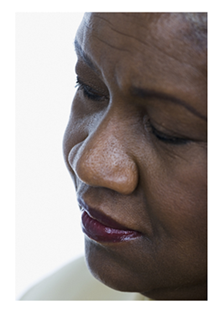As information continues to roll in on the devastation from Hurricane Sandy, I couldn’t help but think about the magnitude of the loss that so many are facing. Loss that may hit after the initial shock of the events of this week.
 I cannot imagine what it would be like to lose everything – the family photographs, the drawings and cards my boys made for me when they were little, or the tiny necklace my grandmother wore in an engagement portrait 85 years ago. It’s a small chain of beads. It isn’t worth much of anything, except to me.
I cannot imagine what it would be like to lose everything – the family photographs, the drawings and cards my boys made for me when they were little, or the tiny necklace my grandmother wore in an engagement portrait 85 years ago. It’s a small chain of beads. It isn’t worth much of anything, except to me.
I cannot imagine how it would feel to face the tedious and time-consuming tasks involved in negotiating with insurance companies, sorting out deductibles, dealing with paperwork and payment plans. Then there are issues of relocating for a period of time in order to wait out repairs or rebuilding. And what about accommodating the stresses and trauma felt by children facing the loss of home and routines, or teenagers in the midst of worrying about midterms or SATs or applying to college?
And all of this assumes no physical injuries to manage.
Everyday stress? It pales in comparison.
Post-Traumatic Stress
Post-Traumatic Stress goes beyond anything that everyday stress involves. It leaves deep and enduring scars – a new reality that takes time to sink in – and may reverberate for years afterward over seemingly “normal” events that trigger reactions.
I’m not talking about those with minor damage or the considerable inconveniences of extended periods without power, which isn’t to say they aren’t deeply affected. But those who have lost everything, not to mention loved ones. How do they recover? How do we help?
Medicine.net describes Post-Traumatic Stress Disorder as follows:
an emotional illness that is classified as an anxiety disorder and usually develops as a result of a terribly frightening, life-threatening, or otherwise highly unsafe experience. PTSD sufferers re-experience the traumatic event or events in some way, tend to avoid places, people, or other things that remind them of the event (avoidance), and are exquisitely sensitive to normal life experiences.
I searched on the Internet to find a selection of resources that might be of interest on coping with natural disaster, on post traumatic stress syndrome, on what to watch for in children, and symptoms that may arise at a later point in time and linger.
There are many more; this is a small selection.
Resources: Coping with Loss After Natural Disasters
Here are a few resources on coping with loss after a natural disaster. They offer some definitions, symptoms to watch out for, and in general, food for thought.
 About.com offers a serious of articles on Post-Traumatic Stress Syndrome (PTSD), dealing with situation-specific circumstances.
About.com offers a serious of articles on Post-Traumatic Stress Syndrome (PTSD), dealing with situation-specific circumstances.
- Depression resulting from Natural Disasters (About.com)
- Depression in Children following Natural Disasters (About.com)
- Disaster Survivors Face Risk of PTSD (About.com / Medicine.net)
The Centers for Disease Control (CDC) offers some information on depression and disasters. It’s a stub really, but it’s a reminder that we need to keep careful watch if sadness and depression persists.
- Risk of Suicide (CDC.gov)
More on children, PTSD, and depression following natural disaster:
On Perspective, Resilience, and Community
It’s Halloween. It’s a day that makes me smile generally speaking, as I sneak a few mini-Snickers from the bowl waiting by the door, and I look forward to gleeful faces arriving in the evening – parents beaming behind them.
Tonight, I will welcome trick-or-treaters as usual – children who are painted and disguised, excited as they grab a handful of candy and drop it into their plastic pumpkins or paper bags. I may even slip into a makeshift costume of my own, if I think it will provoke a laugh.
Laughter is excellent medicine, as is a pleasant and familiar routine. I take both for granted too often. Perhaps we all do.
But worry for those we love reminds us how profoundly important people are, not things. I think of my little boys as they meandered door to door with friends for years, enjoying Halloween. Yet I think of the concept of “home,” the security of having a home, and how vital that stability is to who we are and how we operate in the world.
Tragically, there were victims of this storm. Their families will never be the same. And water damage, fire, and total destruction of property will force many out of their homes indefinitely.
But we also have incredible stories of heroism, reminding us of American heart and resilience – our ability to bounce back, to fight our way back – including through trauma.
Community – wherever it exists – is so important when we’re facing adversity. My hope is that those of us with only “normally stressful” lives appreciate what we have – and who we have. And may we all find patience and generosity for those who need our support, however long that may last.
For options on helping the disaster relief efforts, check out this article on Huffington Post Impact.
An important reminder, D. As the water recedes and the winds die down, the emotional damage of the storm doesn’t wash away. Thanks for the links.
As the days pass, there are more and more stories and images of the devastation caused by Sandy. I can’t imagine losing everything. The emotional toll can be as devastating as the physical loss. It does make me grateful for what I have.
Very thoughtful post!
Laughter is helpful when tragedy strikes. It’s so true.
Sometimes it’s pretty hard to come by.
I know that I’ve been so grateful at my stress-filled times when people have come by to “loan” me their laughter because mine was all dried up. Just being around someone who was happier than I was helped.
And keeping this in mind, that it is the string of beads, like your grandmother’s necklace that might be causing suffering…even when we see millions of dollars of loss. People see relationships.
Following the news of this catastrophe has been heartbreaking. So much suffering, as you say, Rebecca. All the family treasures that can never be replaced. And for older people, those who have lived generations in the same homes / neighborhoods, it’s so much more difficult to recover. Yes, relationships.
Thank you for this post.
Two things:
First, remember that it’s a major trauma to live through a huge disaster like this, whether or not you experience major loss. Losing loved ones, a home, or both is devastating. You’re never the same afterwards.
But it is also life altering and traumatic to *almost* lose everything. To be spared is emotionally scarring not only because of the fear and stress, but because of the guilt. Being the person across the street from someone who lost everything is intense. Having flood waters come up to the second floor and to be basically unscathed is really hard psychologically. I’m not comparing death with a close call. But I’m saying that in my experience through two major natural disasters, hearing, “well, at least you’re okay and you still have everything” is deeply hard for survivors. Of course they’re grateful. But they’re still traumatized.
Something we will all need to remember is that anniversaries of a major trauma are particularly hard. I managed through a huge disaster in which I lost everything. And as lost and sad as I was, it faded a bit as time went on. I had PTSD but didn’t know because I was functioning. (In hindsight, not well or normally, but what did I know?) Then the year anniversary hit with a major PTSD episode.
So let’s try to remember all the Sandy survivors next Halloween. And with each major hurricane. Because for a while (perhaps years or decades) if they hear that word they will be powerless beneath sandy’s fury all over again.
Thank you for posting these links. As we are finally seeing more beyond Manhattan, I see the enormity of the damage and it makes me so sad, my heart goes out to these families…
All very important points, NaptimeWriting.
I think of the stories that have come out just in the past 24 hours or so. Those two little boys ripped from a mother’s arms. The family in a car in which the parents were killed and not their two children. I think of survivor guilt and its repercussions. The “why me” and the “why not me” that will haunt these families.
I can’t quite explain why this disaster reaches into my guts in a vice grip. Perhaps because I’m from the Northeast, because I’ve lived in New York, because these places are so familiar to me, my sons are in that region (and fine), many of their friends are in that region (and fine). Katrina was geographically closer and some of those displaced teenagers ended up in the city where I live and in my sons’ school. There were, of course, problems that rippled through, even being one of the receiving areas for a very limited number of those kids.
And what do we hear about the Katrina victims now? How fickle our memories and our compassion.
Yet this one seems surreal and painfully close, at the same time. I wonder how long before the mental health community will get in there – too soon I imagine – but there will be so much support needed. I’m already wondering what Thanksgiving will be like for these families. How we might somehow have a buddy system, a means to virtually adopt a family and help, somehow, if not physically / logistically welcome a family into a home for the holidays. That may be a ridiculous idea. I don’t know. But I feel we should be doing more. I feel I should be doing more, and I don’t know – realistically – what that is.
I liked this post from James Altucher, who lives in lower Manhattan:
7 Things I Learned from Sandy
One thing he liked: he finally met his neighbors.